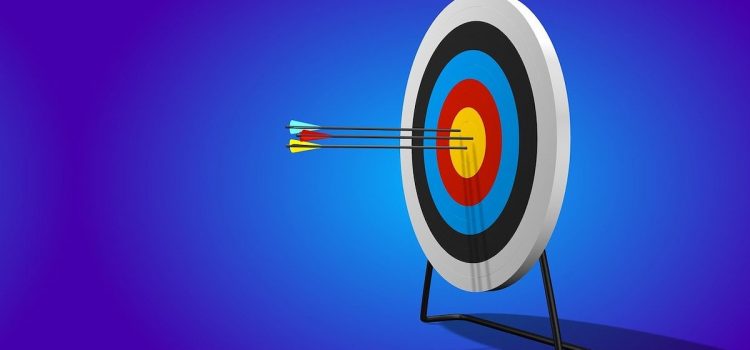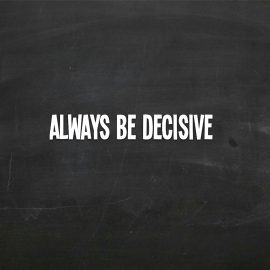

This article is an excerpt from the Shortform book guide to "The Genius Zone" by Gay Hendricks. Shortform has the world's best summaries and analyses of books you should be reading.
Like this article? Sign up for a free trial here.
What’s your particular genius? Have you experienced true creativity and contentment?
In The Genius Zone, psychologist Gay Hendricks writes that the best way to stop living an unfulfilling life is to start tapping into your creativity. This happens in the Genius Zone. Hendricks discusses what it is, what’s unique about it, and how to recognize what’s in your zone of genius.
Read on to learn about this special place where your passions and skills meet to serve others and bring you fulfillment.
What’s the Zone of Genius?
To understand how you can feel happier and more fulfilled by living your life in the zone of genius, you first have to understand what the Genius Zone is, why it’s special, and how you might recognize it in your life.
Hendricks uses the term “Genius Zone” to refer to the mind-body space that you enter when two conditions are met: You’re doing what you love to do, and you’re using your skills to make a positive impact in the world—in other words, it’s the space where you can access your “genius.”
Hendricks writes that, when you engage with tasks in your Genius Zone, you devote a deeper level of attention to them, a kind of attention that’s different from what you exercise even when you’re engaged in activities you’re really good at. You’re also able to freely access and express your creativity, pursue your creative potential, and find a new level of fulfillment and joy in your life.
| How Does the Genius Zone Compare to Flow? Many books on happiness note that focusing on the things you can control and tapping into your creativity can make you feel more fulfilled. In The Big Leap, Hendricks explains that when you’re in the Genius Zone, you can get to the state of “flow” as described by Mihaly Csikszentmihalyi in his book Flow. Csikszentmihalyi writes that we feel happy when we have a sense of control over our thoughts and feelings. That’s also when we can experience a “flow” state, where we become immersed in what we’re doing and feel a deep sense of purpose and meaning as we work. Csikszentmihalyi explains that you’re better able to access this state when you’re working to achieve something that’s important to you. That coincides with Hendricks’s advice to spend your time on activities that will help you make a positive contribution. What Hendricks calls your “genius” equates, in Csikszentmihalyi’s model, to a skill you can cultivate by learning to focus your attention on a task so that everything else recedes into the background. Attention is just as crucial in Flow as it is in The Genius Zone. Csikszentmihalyi makes the point that your thoughts, emotions, and memories are all shaped by how you direct your attention. Consciously choosing how and where to direct your attention can help you determine how you experience your life (and, Hendricks would argue, how much of it you spend in the state of fulfillment you reach in the Genius Zone). The deep level of attention that characterizes flow has empirical evidence behind it, too. Researchers have found that the flow state is produced by an alteration in brain function: Your attention and awareness are heightened, problem-solving becomes almost automatic, and areas of your brain involved in self-monitoring—areas that might normally make you feel self-doubt—are deactivated, enabling you to work creatively and without hesitation. |
What’s Special About the Genius Zone?
The Genius Zone is a unique mind-body space that you enter only when you’re working on tasks that align with your particular genius. Hendricks differentiates the Genius Zone from other zones—the Incompetence Zone, the Competence Zone, and the Excellence Zone—which are characterized by the ability and affinity you have for the tasks in each category.
- In the Incompetence Zone, you spend your time and attention on things that you aren’t any good at. These are tasks you could and probably should delegate to someone else.
- In the Competence Zone, you devote time and attention to things that you do well, but not better than most other people. There’s nothing special about your skill with these tasks or your enjoyment of them, even though you’re competent at them.
- In the Excellence Zone, you spend time and attention on tasks that you’re great at but don’t truly love. Though you have a high level of skill at these tasks, they don’t satisfy you. Your skills in this zone are likely in demand (and you may even be well-compensated to use them), but work in this zone doesn’t make you feel fulfilled.
It’s only in the Genius Zone that you access what Hendricks calls “true creativity,” which involves serving yourself and others with your natural abilities—even if they’re not in traditionally creative fields. (Shortform note: There are many ways to think about creativity. One definition comes from Big Magic, where Elizabeth Gilbert defines creativity as a commitment to exploring the gifts that you’ve been given by the universe: the talents, interests, and desires that you need to access if you want to interact with something that’s bigger than yourself.)
The Genius Zone differs from the other zones (particularly the Excellence Zone) because, when you’re inside it, you use your creativity to do things that you love and to make a positive contribution to the world. You can reach a deeper level of creative fulfillment by working in the Genius Zone.
| How Can You Decide Where to Focus Your Time and Attention? The areas of competence that Hendricks outlines—the Genius Zone, Excellence Zone, Competence Zone, and Incompetence Zone—correspond to different categories of work outlined by other authors, and Hendricks isn’t alone in advising that you prioritize your tasks and delegate work that doesn’t make the best use of your skills. In Hyperfocus, Chris Bailey offers a framework for understanding which tasks are worthy of your time and attention. Bailey suggests creating a matrix with four quadrants: Quadrant 1 contains tasks that are unnecessary, unproductive, and not enjoyable. Quadrant 2 comprises tasks that are enjoyable but unproductive, ones that distract you from more important work. Quadrant 3 holds tasks that are productive but not enjoyable. And Quadrant 4 is made up of tasks that are productive and enjoyable but also meaningful, ones that help you achieve your purpose. The tasks in what Hendricks calls your Incompetence Zone mostly land in what Bailey calls Quadrant 1 since you aren’t good at them, probably don’t enjoy them, and don’t derive value from them. The tasks in your Competence Zone land in Quadrant 3 because they’re productive (and you’re good at them), but you don’t necessarily enjoy doing them. The same could be said of many of the tasks in your Excellence Zone: You’re great at these tasks, but they don’t offer you true enjoyment or fulfillment. The tasks in your Genius Zone fall into Quadrant 4: The time you spend on them is productive and enjoyable, you’re better at these tasks than most other people, and when you’re working on them, you’re also moving toward fulfilling your purpose. Just as Hendricks writes that you should focus your time and attention on the tasks in your Genius Zone, Bailey explains that emphasizing tasks in Quadrant 4 enables you to devote your attention and skills to the tasks that matter most. |
How to Recognize What’s in Your Genius Zone
To identify what’s in your Genius Zone, Hendricks recommends considering a few criteria. You can pinpoint areas where you have remarkable abilities, or ask yourself what you really love to do. You can also think about which activities you find the most fulfilling or whether you do any work that doesn’t feel like work to you. Those all serve as hints that an activity might fall into your Genius Zone. For example, you might recognize that writing is in your Genius Zone if you feel deeply satisfied when working on an essay or find that writing a blog post doesn’t feel like work.
Another hallmark of tasks in your Genius Zone is that you probably experience them in a distinctive way with your body. The embodied experience of engaging your genius feels different for everyone: Some people lose track of time, others experience time slowing down, and still others feel a physical sense of joy or freedom.
(Shortform note: Some experts who write about finding meaning in life advise paying special attention to the tasks you enjoy doing. In Think Like a Monk, Jay Shetty writes that devoting your time to the activities you enjoy helps you feel happier and more satisfied. He explains that when you feel interested in something, you become more engaged with it. Deeper engagement helps you focus more completely and work to perfect your skills. But Shetty notes you can also find meaning in tasks you don’t naturally find interesting: By cultivating an appreciation for them, you can learn to deeply engage with and derive satisfaction from just about any task.)
Exercise: Find Your Genius
Hendricks writes that your genius is about the way you do the things you love and the attention that you devote to them, and that true creativity involves serving yourself and others with your creative gifts.
- First, think about one creative task that you find exceptionally fulfilling. Maybe it’s a task where you become deeply absorbed in what you’re doing, something you’re very skilled at, or something that doesn’t feel like work to you. Write your task below.
- Next, think about how spending more time pursuing this task could serve you. Maybe you’d find your days more fulfilling if you spent more time on your creative work. Perhaps you could get started on a goal you’ve always had or get paid to do creative work. Write down one or two ways that spending more time with this task could serve you.
- Finally, think about how devoting more of your time and attention to this creative task could serve other people. How can you use your creativity to do something that’s valuable or meaningful to other people in your community? (Maybe you can put your skill to use working for a cause you care about or helping an organization you support.) Write down one or two ways that devoting more time to your creativity could serve others.

———End of Preview———
Like what you just read? Read the rest of the world's best book summary and analysis of Gay Hendricks's "The Genius Zone" at Shortform.
Here's what you'll find in our full The Genius Zone summary:
- Why you should be devoting your time to creative work
- How tapping into your creativity helps you build a happier life
- Hands-on methods for getting in touch with your creativity






